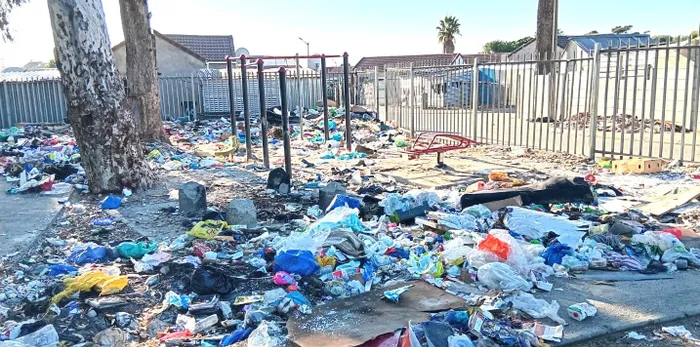SA highlights urgent need for collective climate action at G20 environment meeting

Narend Singh, the Deputy Minister of Forestry, Fisheries and the Environment, during a World Oceans Day event at Umkomaas North Beach on the South Coast, recently. He also interacted with fisherfolk and the community during the Sardine Run at the beach.
Image: Supplied
Deputy Minister of Forestry, Fisheries and the Environment, Narend Singh, has warned that the world is rapidly running out of time to meet critical sustainability and climate targets – and called for accelerated, coordinated global action.
Speaking at the second G20 Environment and Climate Sustainability Working Group (ECSWG) meeting in Skukuza, Kruger National Park, on Tuesday, Singh stressed the urgency of delivering on the Sustainable Development Goals (SDGs) and broader climate objectives. “We are less than five years away from our deadline to achieving the SDGs and the end of this critical decade for climate action,” he said. “Yet we are still far from attaining these goals and action targets.”
According to Sustainable Development Goals: Country Report 2023 prepared by Statistics South Africa, South Africa's progress towards meeting the SDGs is mixed. While the country has made strides in education, healthcare, water, sanitation, electricity, and gender equality, significant challenges remain, especially in addressing poverty and inequality, which were exacerbated by the COVID-19 pandemic.
Singh pointed to rising poverty levels, increased pollution from hazardous chemicals, and record greenhouse gas emissions in 2023 as indicators of global failure. He said these challenges are exacerbated by unemployment, inequality, environmental degradation, and climate change – all of which are deeply interconnected and demand joint solutions.
“South Africa has placed solidarity, equality and sustainability at the centre of our G20 Presidency,” Singh noted, adding that the current global landscape requires enhanced reforms, inclusivity, and cooperation.
Under South Africa’s presidency, the ECSWG now includes six key priority areas, following the division of Climate Change and Air Quality into standalone themes. Singh said these were carefully selected, building on prior presidencies led by Brazil, India and Indonesia, while aligning with the African Union’s Agenda 2063.
A significant amount of groundwork has already been done. “It is noteworthy that a detailed Communications and Outreach Programme as well as a Work Programme for the G20 ECSWG for 2025 have been developed and a range of technical papers corresponding to each priority area have been drafted,” Singh said.

Increased pollution is a key issue.
Image: supplied
The six priorities include:
- Biodiversity and Conservation: Singh said the G20 can play a pivotal role in reversing biodiversity loss by 2030. This includes recognising the role of traditional and indigenous communities in conservation and tackling environmental crime such as illegal logging and poaching.
- Land Degradation, Desertification and Drought: Achieving land degradation neutrality requires avoiding new degradation, restoring degraded land, and improving water management. Singh emphasised the need to pool resources for large-scale transformative projects.
- Chemicals and Waste Management: This area includes support for a legally binding treaty on plastic pollution. Singh said a shift to circular economy practices and safer chemical alternatives is vital, given the environmental and health risks posed by poorly managed chemicals.
- Climate Change: Singh underlined the importance of just transitions beyond the energy sector. He said South Africa would push for increased climate finance to support low-carbon development and climate resilience in developing nations.
- Air Quality: Singh noted the rising global concern over air pollution and its wide-reaching impacts, from public health to biodiversity loss. The Working Group, he said, can play a key role in identifying synergies between decarbonisation and improved air quality.
- Oceans and Coasts: Marine Spatial Planning and the Blue Economy are critical focus areas, with Singh highlighting the role of sustainable ocean management in protecting infrastructure and supporting coastal livelihoods.
The final G20 ECSWG and Ministerial meetings will take place in Cape Town from 13 to 17 October, where the outcomes, including the Ministerial Declaration, will be finalised.
IOL
Related Topics: